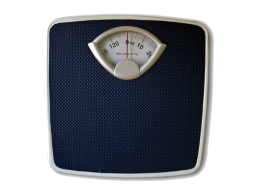
We know some of the weight gain that comes with pregnancy will go away with birth. Expanding blood volume is 3-4 pounds, amniotic fluid is about 2 pounds, the placenta is about 1 1/2 pounds, 2 lbs as breast tissues preps for breastfeeding, and your baby may weigh 7-8 pounds. So, with birth you will drop around 12 pounds or more as soon as birth happens, and lose a few more pounds as your blood volume returns to normal levels.
ACOG has guidelines on weight gain that are tied to what BMI was before pregnancy. The guideline for someone carrying one baby who starts pregnancy at a healthy weight is 25-35 pounds. If pregnancy starts out underweight, then the guidelines allow for higher weight gain, and the guidelines are lower for a pregnancy that starts out overweight.
Gaining too little weight has risks including that baby will have a low birthweight, and it is tied to premature labor. Babies who are smaller seem to have a harder time thriving after birth, requiring more frequent feedings than a baby who is born at a healthy weight. Gaining too much weight also is associated with risks such as gestational diabetes, preeclampsia, postpartum hemorrhage, and baby's blood sugar may drop too much after birth.
I want my clients to gain weight. I don't have "rules" about how much should be gained during pregnancy or when weight should be gained. I don't have a scale in my office to weigh clients. I figure we all have enough stress about our weight without the need to stand on a scale at appointments.
I want clients to eat enough nutrient dense food to support their body and pregnancy. I rely on non-scale ways to ascertain if a client's diet is supporting pregnancy well. I use assessments like how fundal height is increasing, and how baby feels when I palpate. I also observe how clients look, if they feel well, and if they are having any issues such as swelling as pregnancy progresses. I like to see a food log at the start of prenatal care, and I like to see one again around 30 weeks. Some of my clients find it really helpful to keep a food log as a way to help keep the focus on eating nutrient dense foods.
I understand the desire not to gain more weight than needed for a healthy pregnancy. I work with clients to encourage them to eat nutrient dense foods, and recommend foods they may want to add or focus on if they experience cravings. If a client is eating primarily nutrient rich foods during pregnancy and engages in regular exercise, I believe she will gain the amount of weight her body needs to sustain that pregnancy.
While encouraging clients to eat nutrient dense foods, we focus on ways to make that sustainable and enjoyable. After all, if you don't like it, you won't keep doing it. We are all individuals and while there are recommendations about weight gain, they may or may not be appropriate for the client. I do not believe in a one size fits all approach to maternity care, and I certainly do not believe a one size fits all approach is appropriate for pregnancy weight gain.

 RSS Feed
RSS Feed